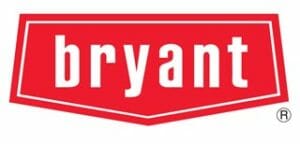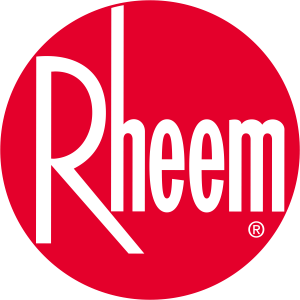Toronto's Trusted Furnace Installation Experts Since 1992
Sometimes replacing a furnace just makes sense!
Looking for professional furnace installation services? Tropic Air recognizes the significance of selecting the appropriate heating system for your home’s size and your family’s requirements. Our skilled specialists are available to assist you in selecting the best furnace and ensuring proper installation for maximum performance and efficiency.
Several things contribute to the effectiveness of your furnace installation. At Tropic Air, our qualified HVAC experts meticulously evaluate critical factors before, during, and after installation. These considerations influence the furnace’s efficiency and the overall cost of installation. Our skilled consultants evaluate these components to enable you to make well-informed selections based on your home’s individual needs.
What’s the right furnace for you?
- Furnace Type: Decide if you want a natural gas, electric, or oil furnace.
- Size of Property: Consider your home’s size, It is critical to select a furnace that is appropriately suited for your home.
- Exhaust System: It is critical to ensure the accurate installation of the exhaust system, adhering to stringent rules to avoid any potential threats to health.
- Furnace Location: The location of the furnace is vital for forced air systems but less so for radiator-based systems.
- Insulation: To establish the efficiency of the system being built, we assess the level of insulation in your home.
Why Furnace Replacement Makes Sense
If your furnace is more than 15 years old, frequently fails, or takes an unusually long time to heat your home, it may be time to replace it. Upgrading to a modern, energy-efficient furnace provides various benefits for you and your family, including:
- Efficient Heating: Reduced Cost Of Heating by upto 30%
- Lower repair costs. Save money on frequent repairs
- Improved Airflow: New furnace will improve the ability of your home's ventilation system to move air.
- Less Noise: Newer modern furnace tend to be less noisy while operating
- Rebates : Enquire about home efficiency rebate and Toronto’s Home Energy Loan Program (HELP)
Furnace brands we service, repair and install






Signs That It's Time to Replace Your Furnace!
Furnaces typically last between 15 and 20 years on average. The precise amount of time depends on a number of variables, including past maintenance, use during the colder months, and the caliber of the furnace that was placed in your home.
Sometimes a furnace will just stop working, in which case replacing it is a simple decision. Determining whether a replacement is necessary, however, may not always be straightforward. There are a number of typical signs that it might be time to think about replacing your furnace, including:
- A spike in heating costs not related to the weather
- Your furnace is frequently breaking down and needing repairs.
- Uneven heating throughout your property
- visible rust or other damage appears on the furnace
- Unusual smell and sounds while operating
It’s critical to have a furnace that runs at peak efficiency to sustain constant heating in the wintertime. You may increase the lifespan of a furnace by doing routine maintenance and servicing. However, when your furnace starts to show signs of aging, it is vital to think about replacing it.

Toronto Furnace Installation- FAQ
Installing a new furnace is a major decision for homeowners, and it’s understandable to have concerns about the process. From selecting the correct system to understanding installation dates and prices, Tropic Air is here to make everything plain and simple. Our Furnace Installation FAQ section is intended to answer your most frequent questions and help you make informed selections for a smooth and effective heating experience.
How long does it take for a heating and cooling professional in Toronto to install a furnace?
Typically, installing a new furnace system with the help of heating and air conditioning professionals at Tropic Air, may take anywhere from 6 to 12 hours, and sometimes even more, depending on the complexity of the heating system being installed and other factors and complications associated with the Installation process itself. We recommend speaking to one of our experts for more clarity on time and estimates as every job is different, and the ultimate time would depend on many factors.
How much does a furnace installation cost in Toronto?
One of the most essential yet often overlooked parts when it comes to maintaining your home is the heating and cooling system (HVAC). Be it, harsh winters or boiling summers, these internal heating and cooling systems are essential for maintaining the overall temperature, air quality, and ventilation in your home. On average the cost of a furnace installation in Toronto can range anywhere from $5,000 to 11,000. However, the ultimate cost of a furnace installation in Toronto varies depending on a variety of factors, such as the size of your house, the type of furnace system, repairs, materials, equipment & required labor, and some other factors.
Note: “This is not a quote or estimate, Speak to one of our Toronto HVAC professionals for Quotes and estimates”
When should I replace my furnace?
When it comes, to replacing your household furnace, ideally you don’t want to wait until your furnace completely dies on you before replacing it. That being said, most furnaces have a lifespan of 20 to 30 years, depending on the climate where you live, and the brand of furnace currently installed in your home. As such, after about 15 or so years, you may need to consider a furnace replacement, if your unit is experiencing significant problems that require additional repairs to the system. Furnaces are designed to last a long time, however, like everything else they still wear out over a decade or two.
You can always expand the lifespan of your furnace with regular repairs and tune-ups, such as filter changes, cleaning the burners, and hiring an HVAC technician in Toronto to perform annual inspections of your furnace unit, along with a tune-up before the winter season.
What are some of the signs your furnace needs to be replaced?
Wondering when the best time to replace your furnace is, here are a few important factors to take into consideration when determining whether your furnace needs to be replaced. Note: some of these warning signs may only indicate that a repair or maintenance is required. However, as you near the end of the appliance’s lifespan, these repairs can be an indication that it’s time to replace the furnace entirely.
- Frequent repairs are required for your furnace to function efficiently, all of which can become increasingly expensive.
- Your furnace is starting to make unusual noises, such as a buzzing or rattling sound.
- The furnace is starting to disperse dust, soot, or rust, especially around the register or there is rust, cracks, or corrosion in and around the furnace.
- Your furnace unit is becoming increasingly unreliable, turning on and off more frequently.
- The heat exchanger for the furnace is cracked.
- Your heating bills continue to increase despite a decrease in the amount your furnace unit is used.
- The heat in your home is distributed unevenly, with some rooms warmer than others.
- The humidity in your home has started to increase.
For Better Troubleshooting on a furnace replacement or repair, call Tropic Air HVAC technicians to inspect your old furnace and suggest you best options.
How do you calculate furnace size?
When it comes to estimating the size of your residential furnace heating system, there are a variety of factors to consider. Below we have laid out the steps that you should take to estimate the correct furnace size for your home.
- First, you must calculate the correct square footage of your home – add up all the rooms in your home that you would like to be heated.
- Next, you will need to determine what climate zone your home is in for Toronto – as the climate is another major factor that helps in determining how many BTUs are required to heat your home.
- Lastly, you will have to multiply the square footage of your home by 40, the lower number recommended for the climate zone – this calculation is likely to give you 76,000 BTUs, which should comfortably keep your home warm in the given climate.
- However, these figures are laid on perfect scenarios, and a furnace’s efficiency is dependent on many factors. We recommend you speak to one of our expert technicians to suggest you a suitable option after the site inspection.
What is the correct size of a furnace for a 1500-square-foot house?
You might be wondering how many British Thermal Units (BTUs) you need to heat your home. The first factor to consider is the square footage of your home. Generally speaking, bigger homes require more BTUs to heat your home efficiently. On average a 1500 square foot home in Toronto requires between 45,000 to 90,000 BTUs to efficiently provide heat throughout every area of your home. However these figures are laid on perfect scenarios, and a furnace’s efficiency is dependent on many factors. We recommend you to speak to one of our expert technicians to suggest you the optimal size furnace for your Toronto home. By buying the right size furnace for your home, you can ensure that you are comfortable and don’t spend more on heating than is required for the size of your home. Oversized or undersized furnaces, on the other hand, can cause a slew of additional costs and problems for you and your family down the road.
What size furnace do I need for a 2000-square-foot home?
To determine the correct size of furnace for a 2000-square-foot home, the general rule of thumb is that you need between 30 and 60 BTUs per square foot, depending on the climate zone for your Toronto home. On average a 2000-square-foot home required between 65,000 to 125,000 BTUs. Intrinsically, a bigger furnace, such as one with an output of 120,000 BTUs per hour, tends to generate enough heat for larger homes with lots of open space. However these figures are laid on perfect scenarios, and a furnace’s efficiency is dependent on many factors. We recommend you speak to one of our expert technicians to size your furnace right for your Toronto home.
How long does a furnace last in Toronto?
While there is no specific answer to this question, there are several factors that can impact the lifespan of your furnace. For instance, quality manufacturing from a reputable brand and installation by licensed professionals.
In addition, measures you can personally take to help extend the life of your furnace, such as regularly scheduled maintenance and inspections by trained professionals, along with following the recommended times for changing your furnace’s air filters. Then lastly, your personal comfort preferences and local climate can also impact the efficiency of your furnace over time, depending on how warm or cold you like to keep your home, how often your system is run throughout the year, and the temperature extremes your furnace is put under. By understanding the many factors that are involved in expanding or decreasing the lifespan of your furnace, you can better make critical decisions regarding repairing or replacing your furnace.
Why should I Install a high-efficiency furnace, isn’t a mid-efficient one good enough?
You may buy a mid-efficiency model (78-84% AFUE rating), however, mid-efficiency furnaces are up to 19% less efficient than a high-efficiency model and therefore will raise your operating expenses and greenhouse gas emissions. Depending on exactly what model you purchase and the actual amount of vent piping needed a high-efficiency furnace can cost about a third more to purchase and install than a mid-efficiency design. Be aware that Natural Resources Canada has announced that, as of December 31, 2009, all brand-new furnaces installed must have an AFUE rating of at least 90%.
A high-efficiency furnace (90% Annual Fuel Utilization Efficiency or higher) is a condensing furnace, and as such, they were designed to utilize a second heat exchanger as a more efficient way of heating the air from condensed exhaust gases to reach higher efficiencies. What is more, a high-efficiency condensing furnace also requires specialized venting and draining systems to function accordingly. Unlike standard, 80% efficient furnaces, which are non-condensing and, therefore, don’t require the same kind of specialized materials to function.
Why do high-efficiency furnaces drain water?
High-efficiency furnaces are also known as condensing furnaces. Thus, it is normal for high-efficiency furnaces to create some form of condensation during their operation process. This is because they have two heat exchangers, which create water. As the two heat exchangers absorb so much heat that the exhaust gas changes from a gas state to a liquid state. Thus, creating condensation that is then drained through the condensate line. Note: to maintain a high efficiency rating your furnace must be properly serviced so it can efficiently drain the excess water that condensates. If there is a build-up of condensation or any kind of leak or clog, the condensation can’t be carried out of your home and ends up pooling around your furnace system.
How should a high-efficiency furnace be vented?
If you’re thinking of installing a high-efficiency furnace in your home, be aware of the importance of high-efficiency venting. As there are several important aspects of high-efficiency venting, which require special venting and condensate drainage requirements. Most specifically, sidewall venting, and the use of PVC pipes. Proper sidewall venting requires installing separate vent pipes horizontally so that they go outdoors through a wall of your home. Additionally, these ventilation pipes should be isolated from the combustion chamber and sealed airtight to eliminate any possibility of combustion gas leakage. Moreover, these vents should be constructed so that any condensate in the pipes can drain backward without freezing and drain directly into the floor drain or catch basin.

Toronto Heating Experts Since 1992
Established in 1992, Tropic Air has become a highly skilled HVAC company, providing comprehensive installation and service solutions across the heating and air conditioning industry. We specialize in air conditioning repairs and installations, heat pumps, boilers, tankless water heaters, and more.
Why Choose us
Up Front Pricing with No Hidden Fees
Fully Insured
TSSA and WSIB Licensed HVAC Technicians
24/7 Emergency Repairs Support
Priority Service : Same day or next day repairs
We service all HVAC makes and models.
Call us at (416) 492-7633 or fill out the form to schedule a service appointment.
Tropic Air - Serving Toronto GTA
Phone: (416) 492-7633
